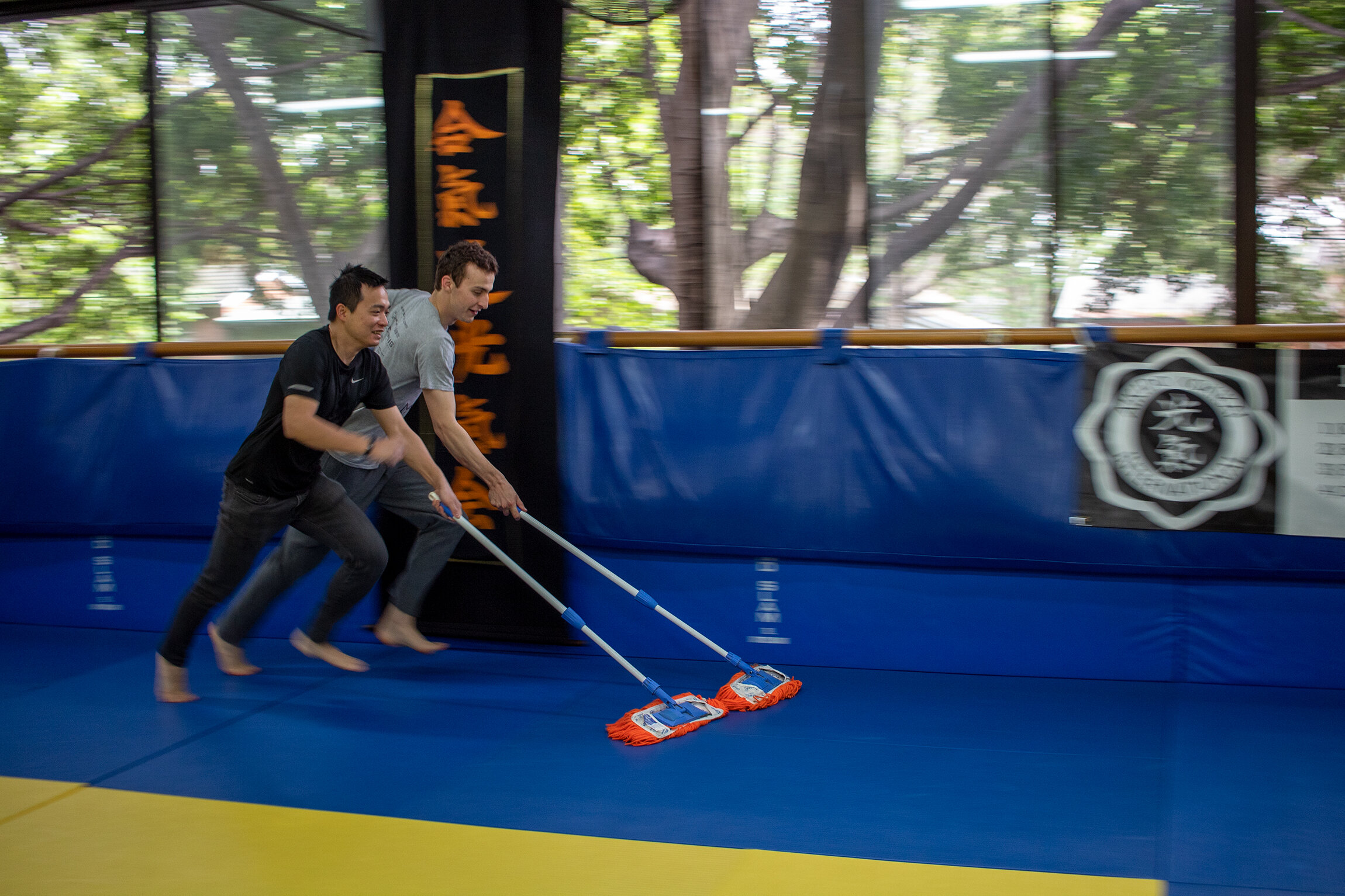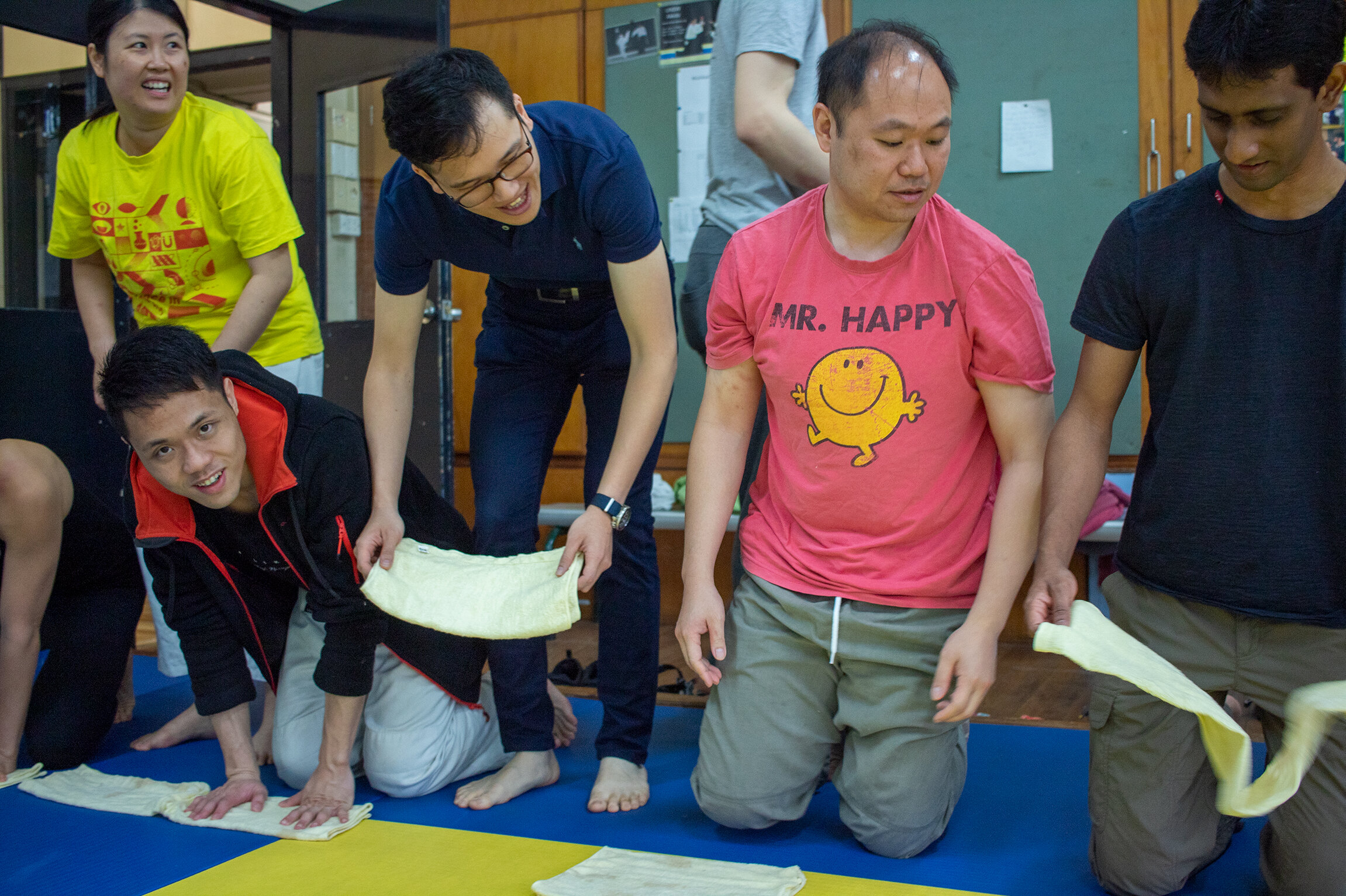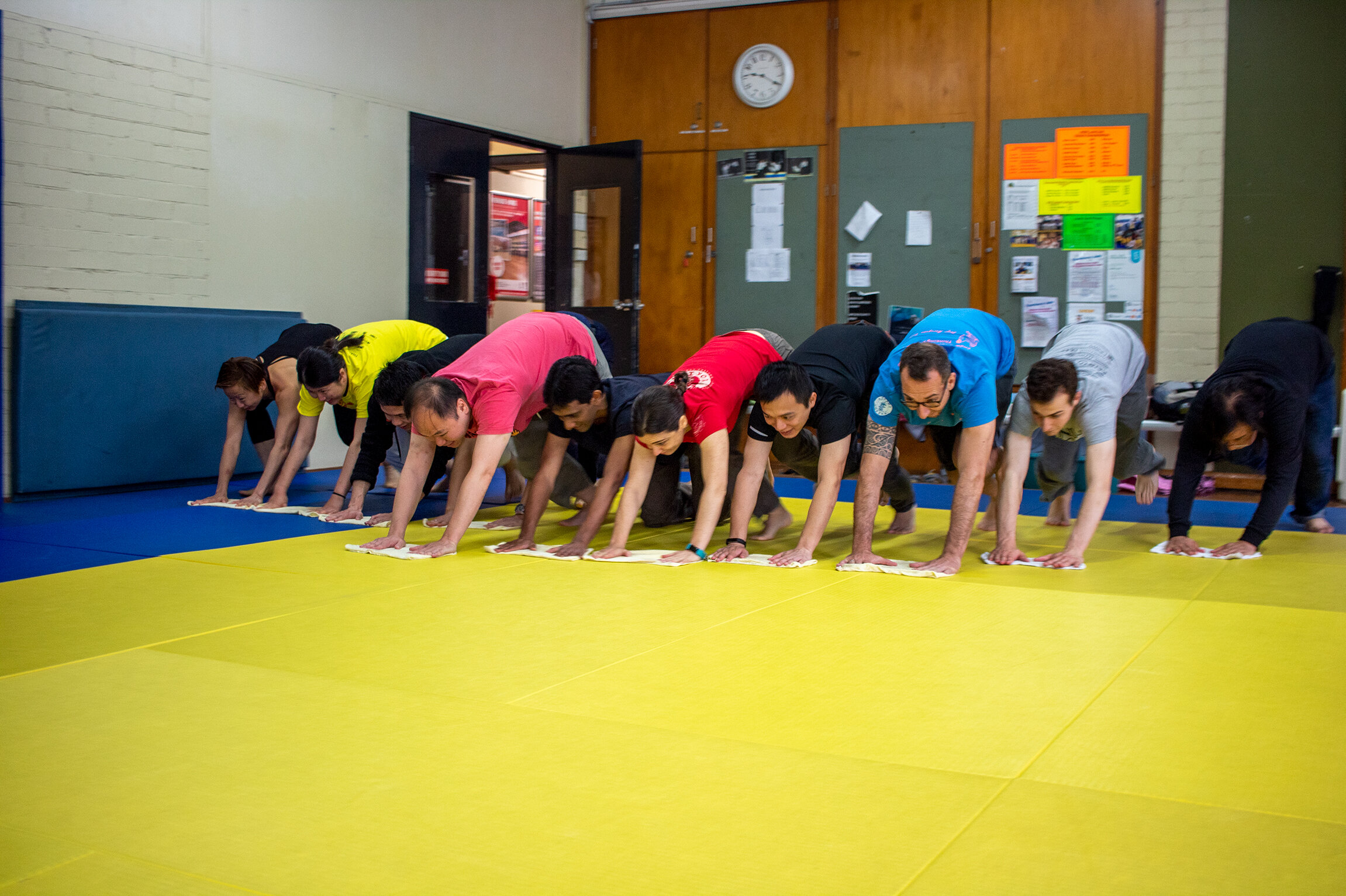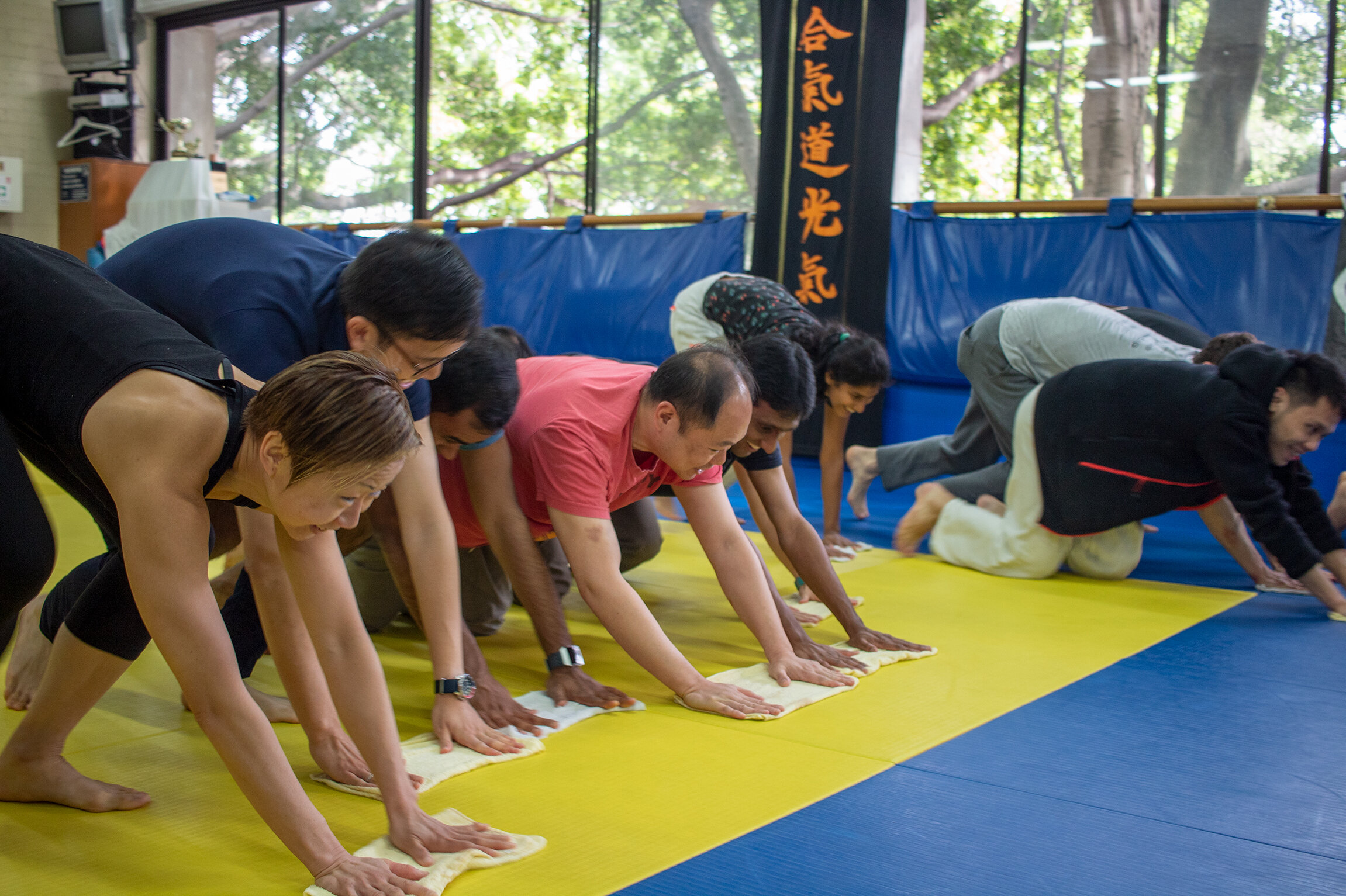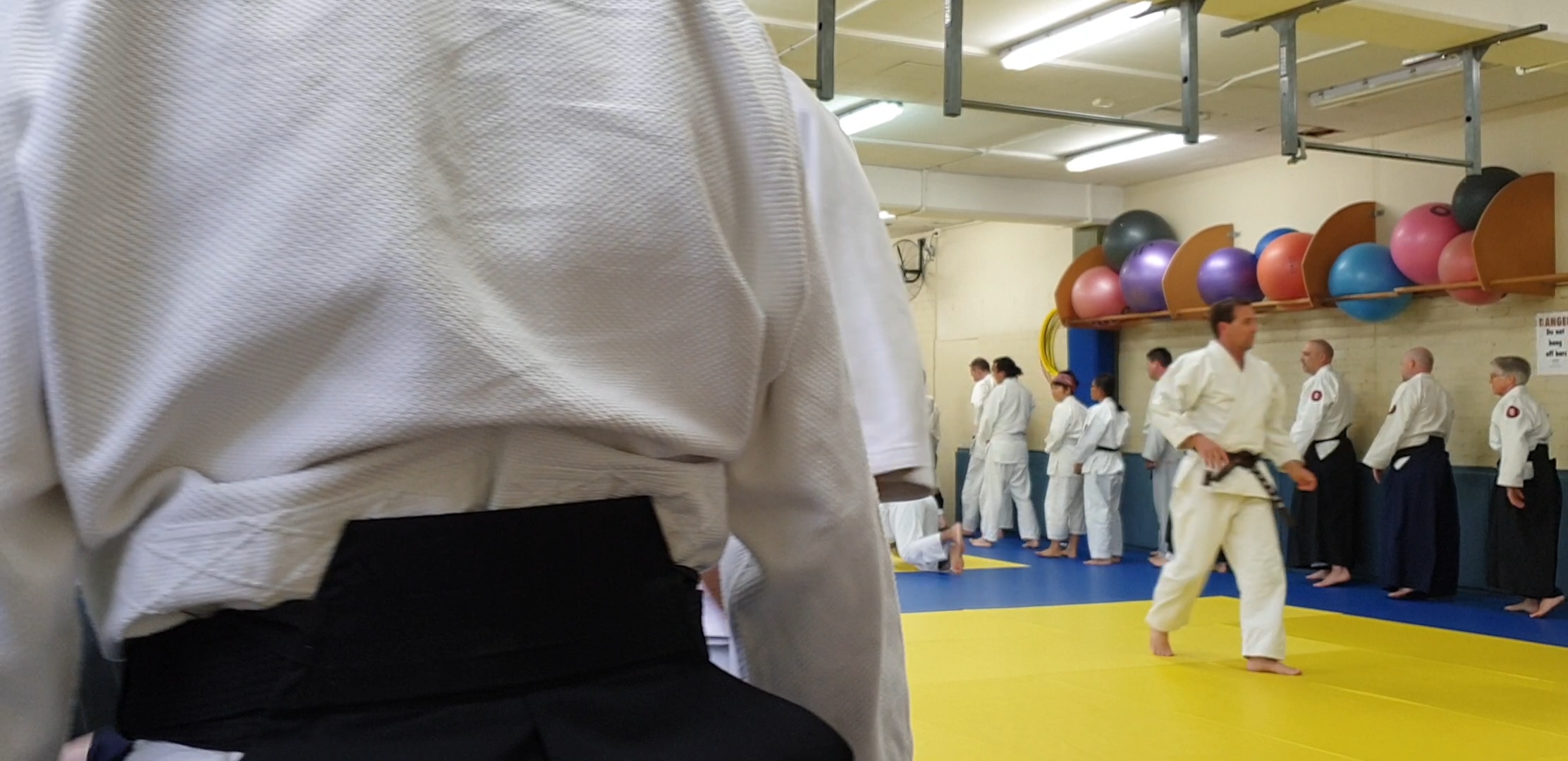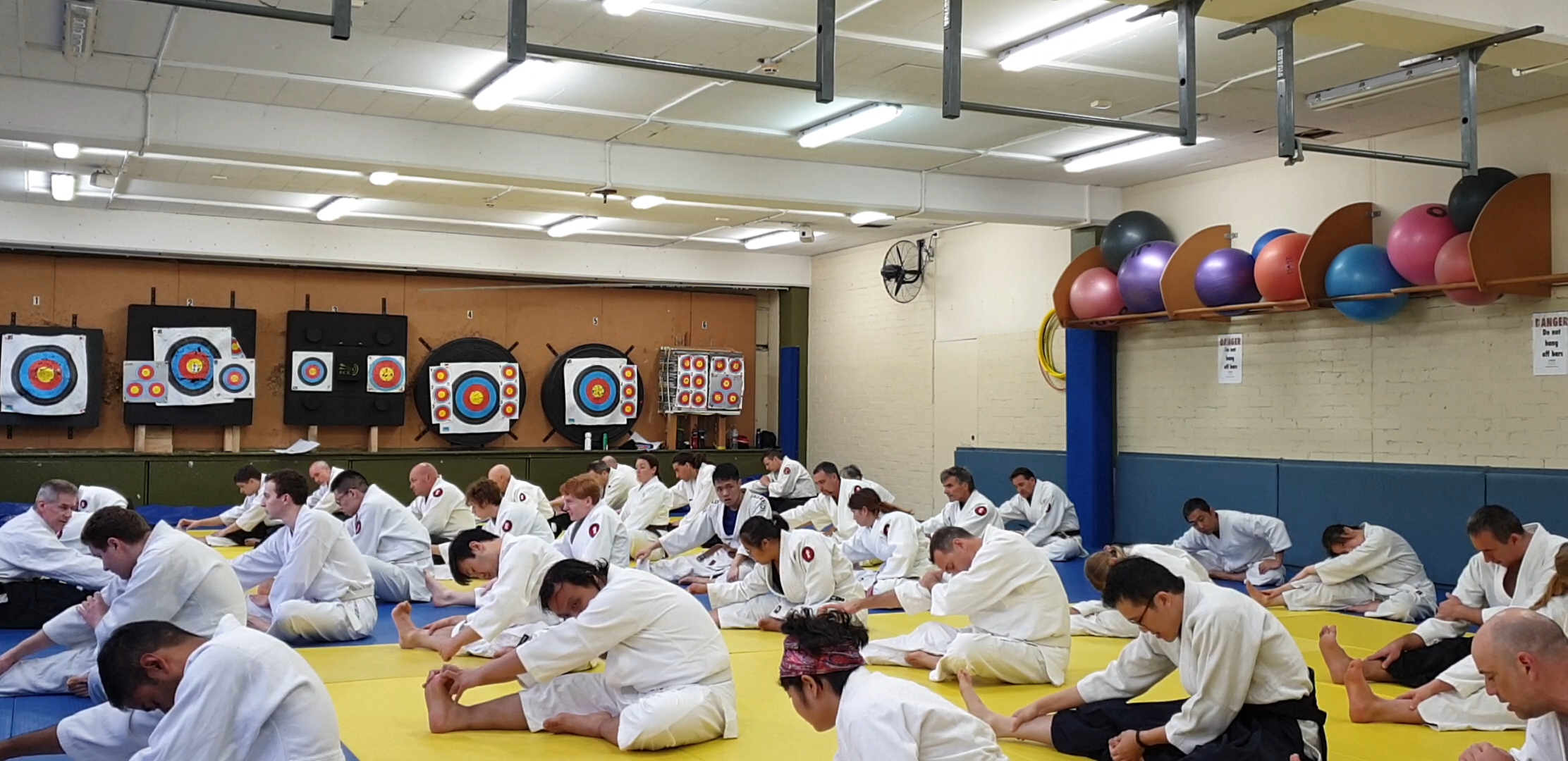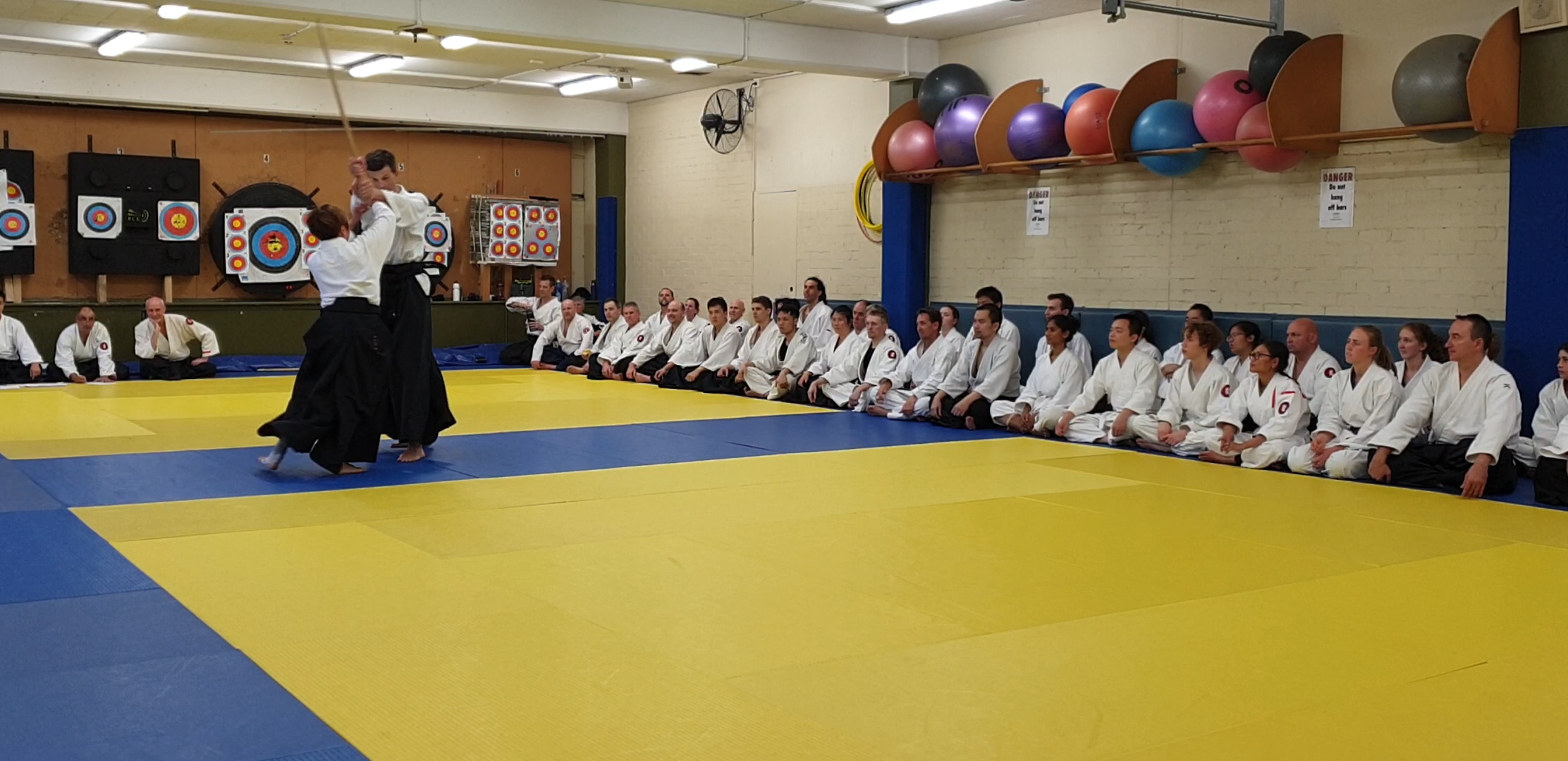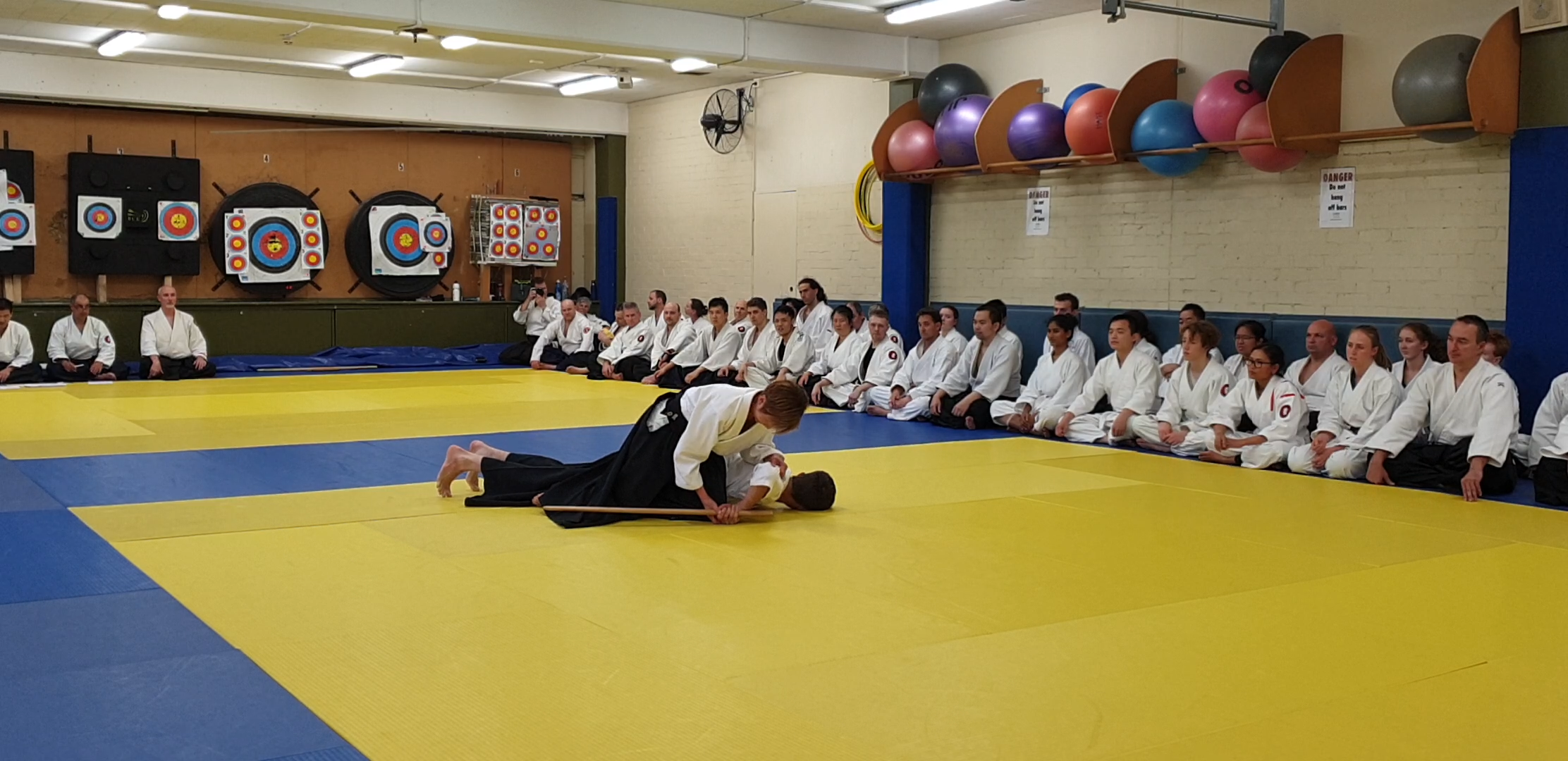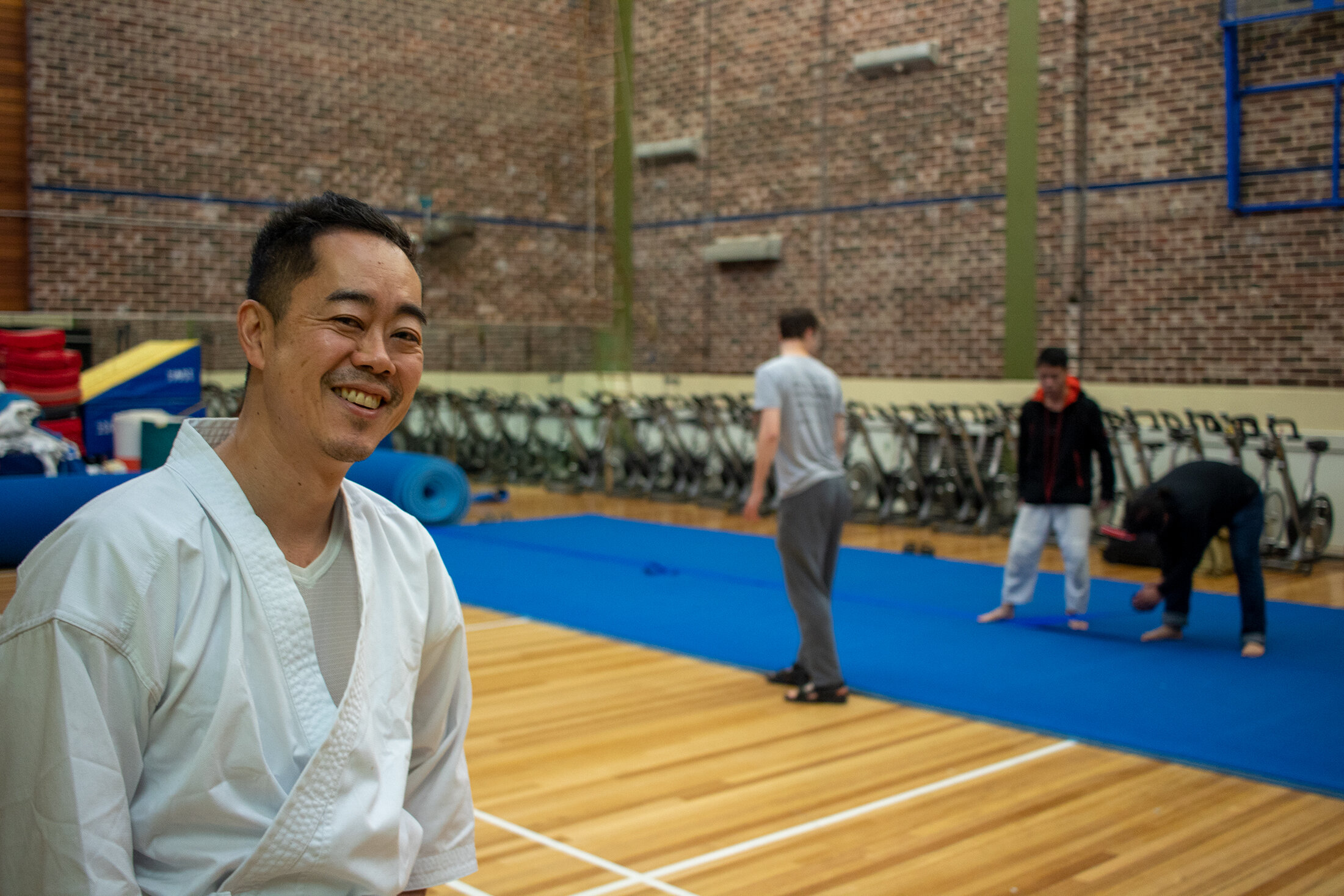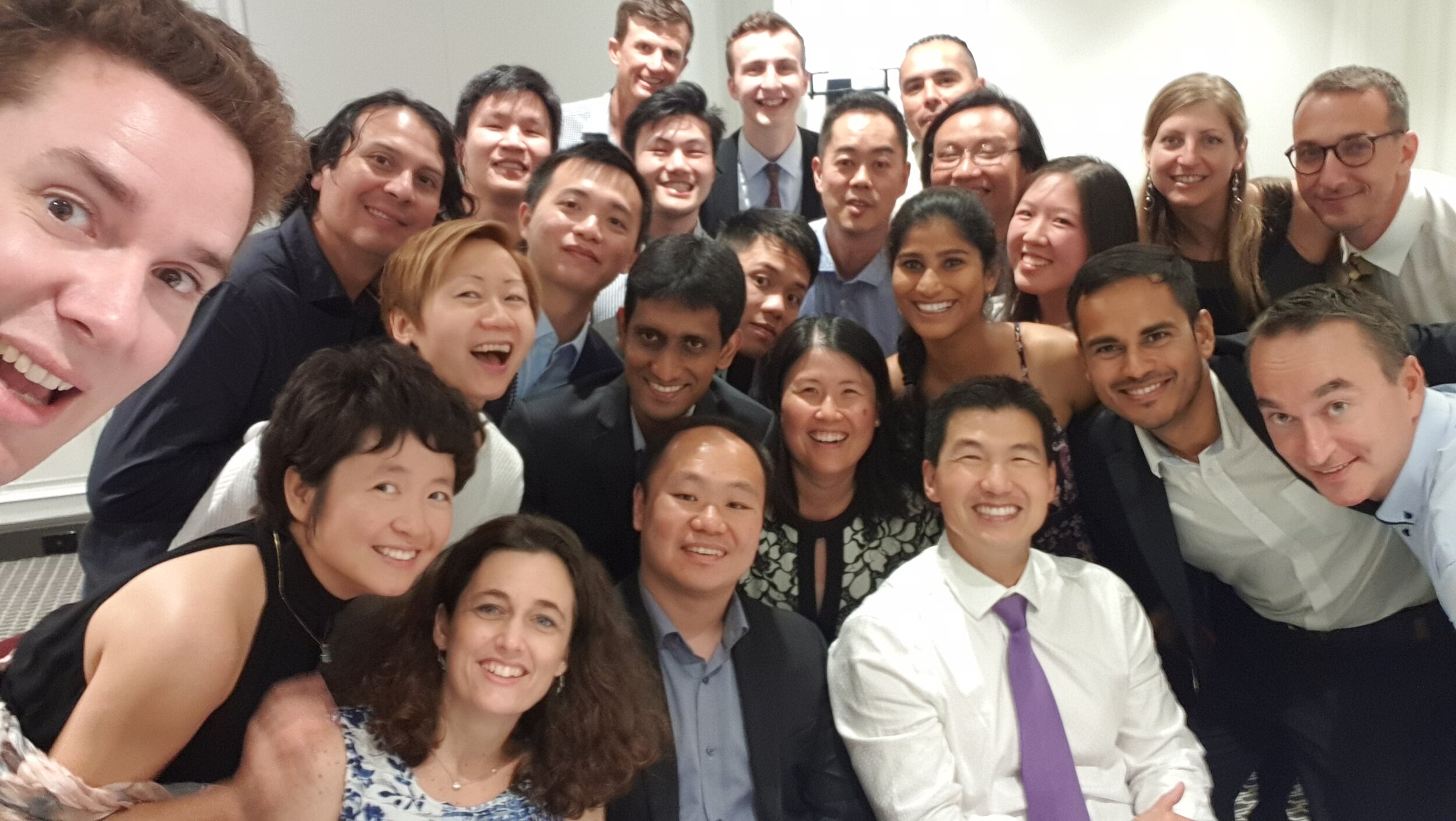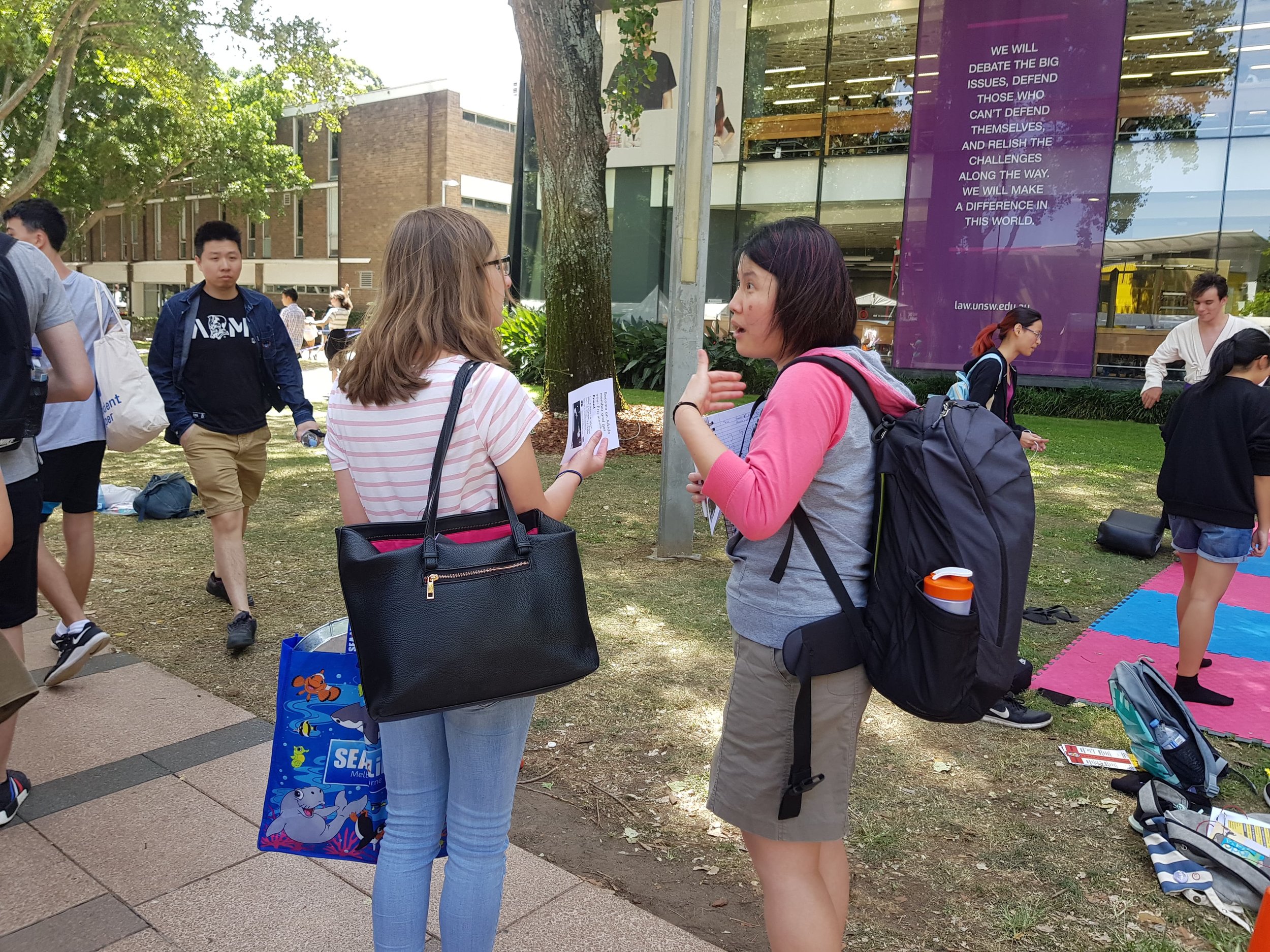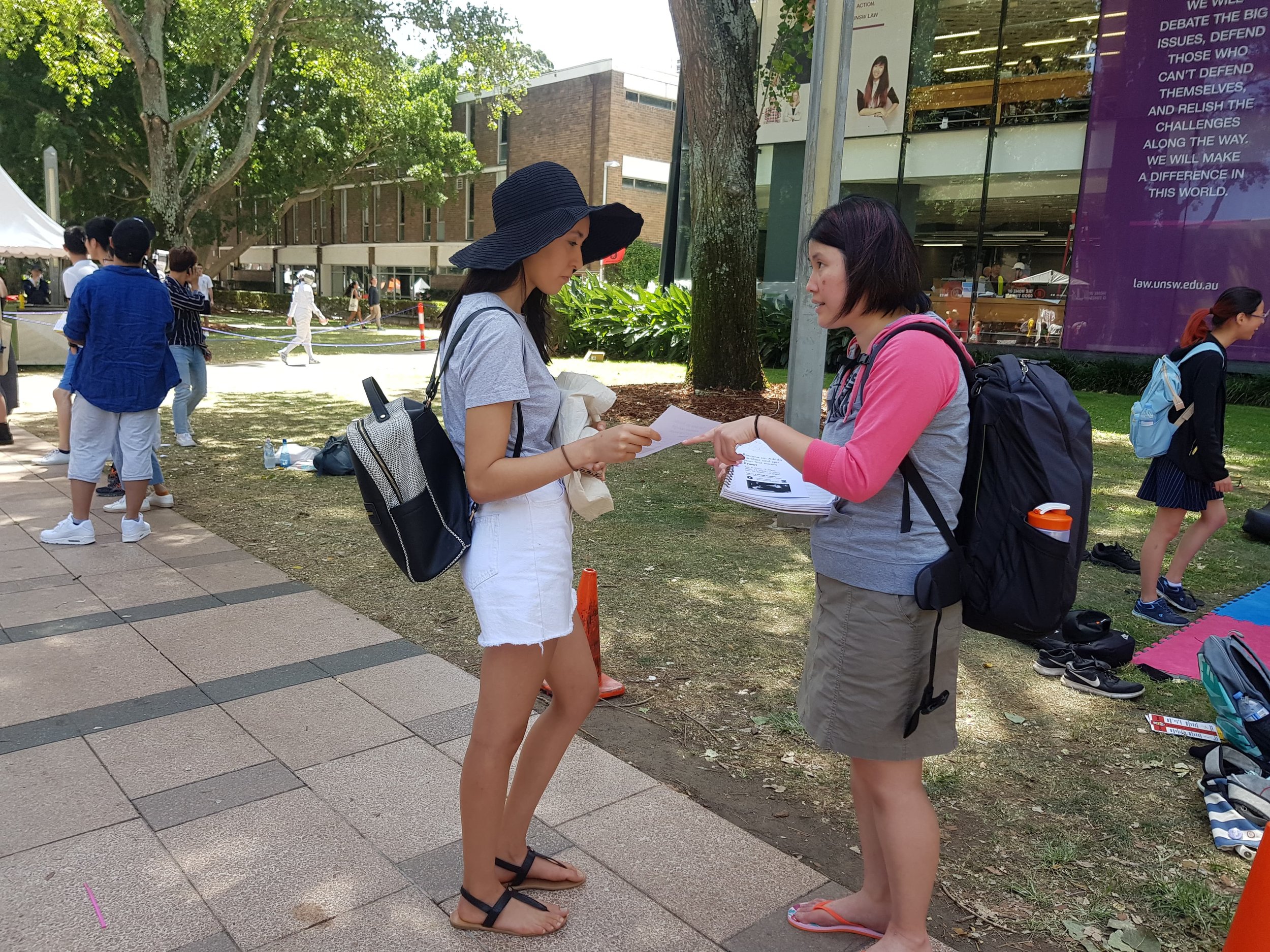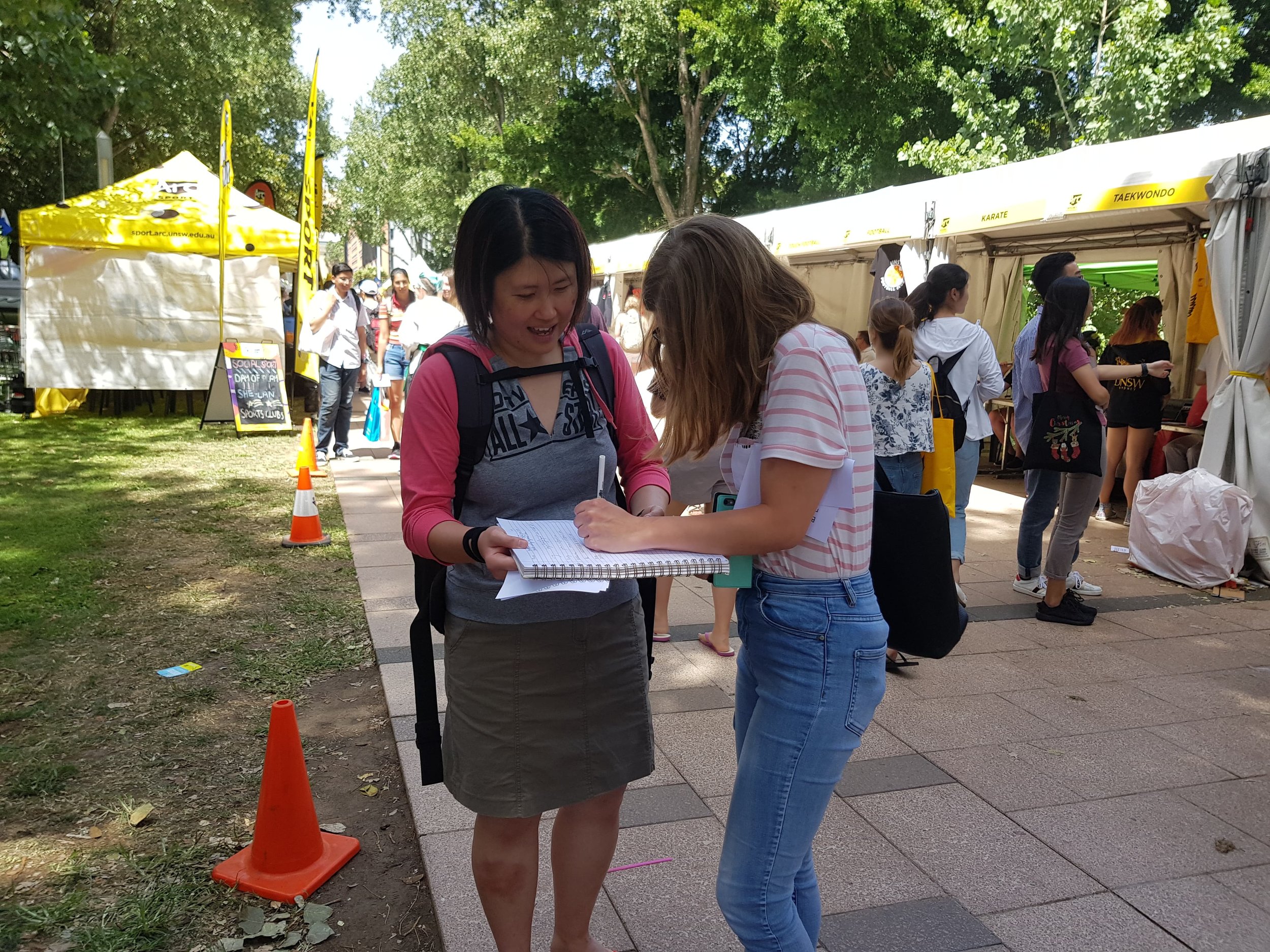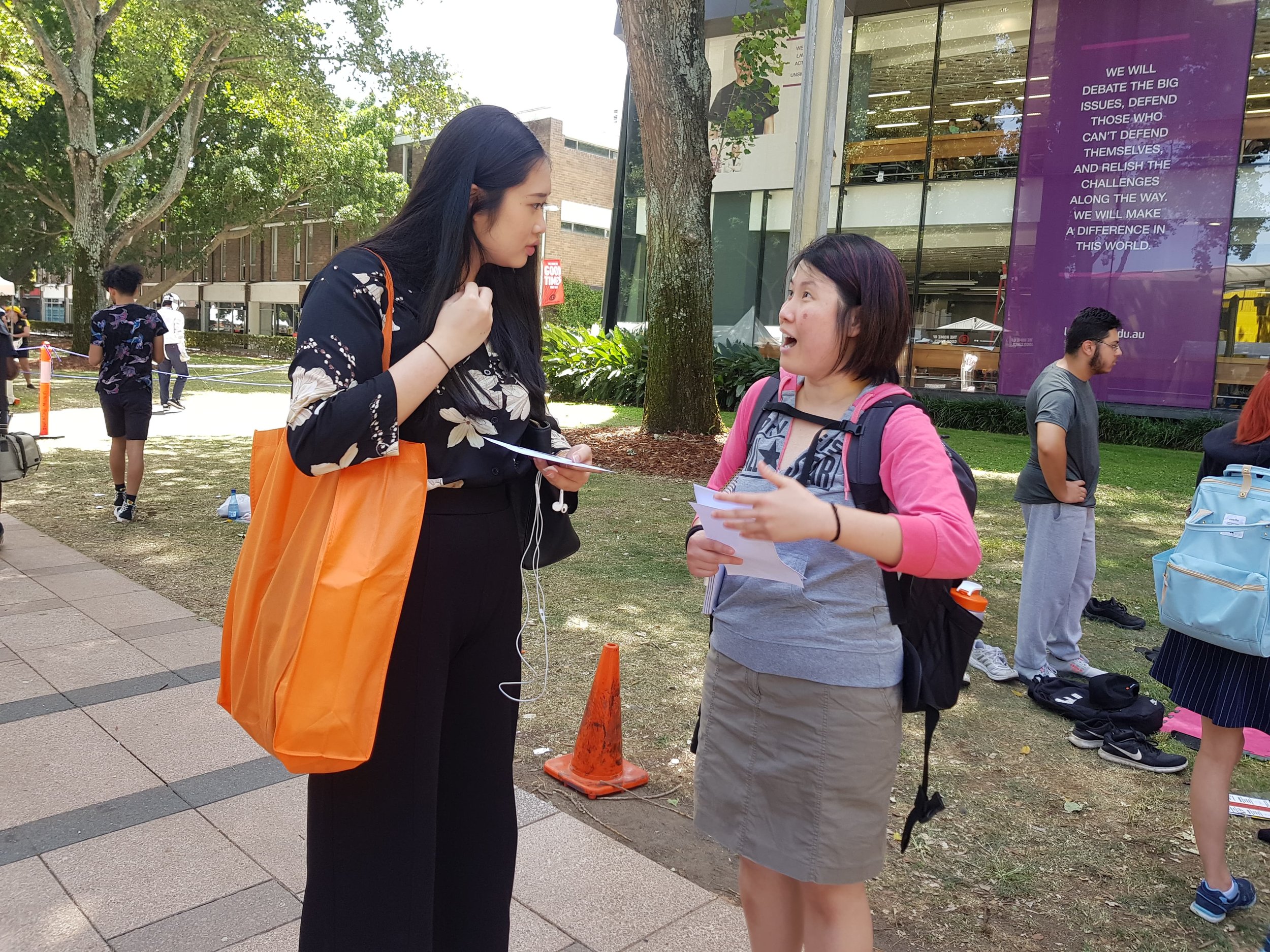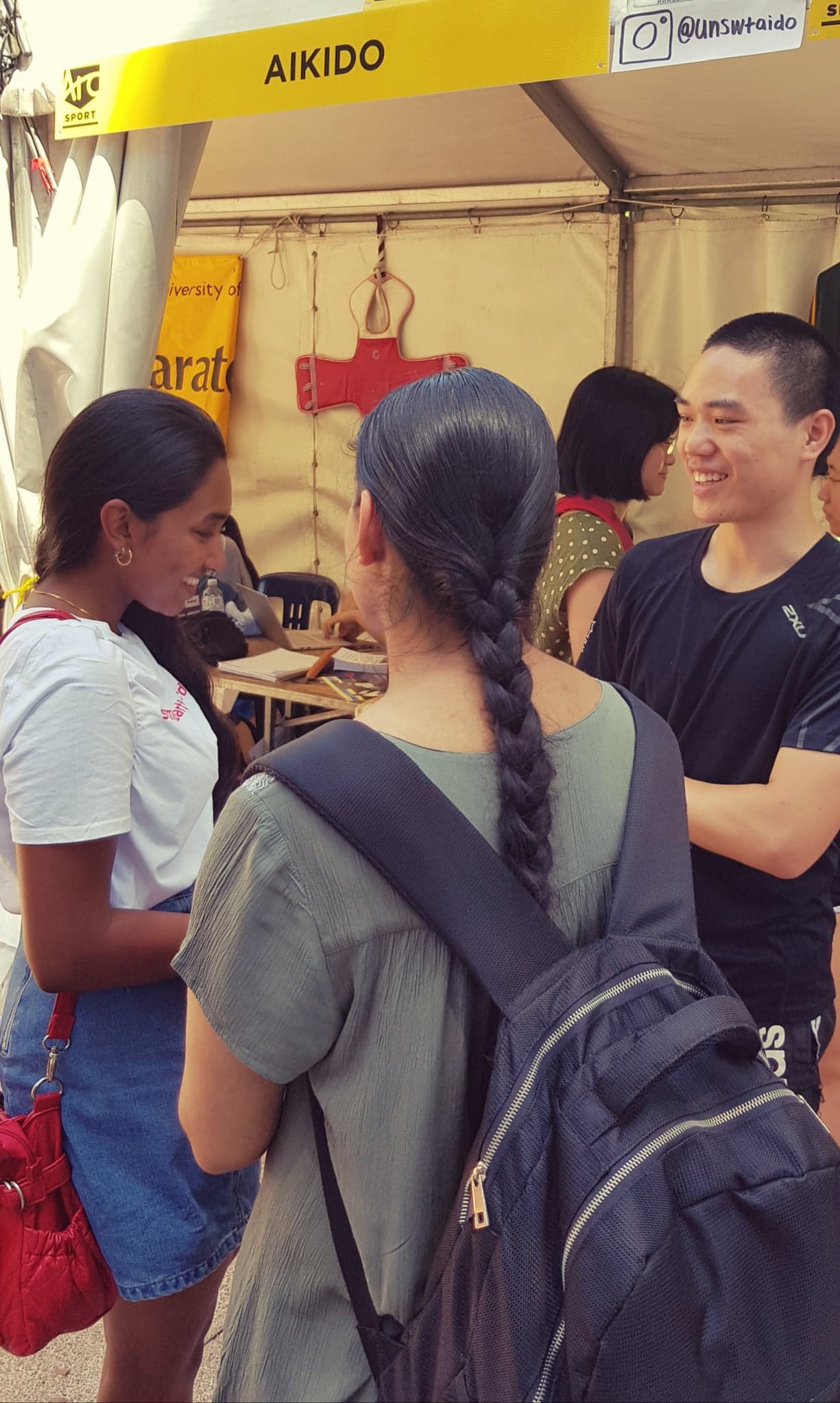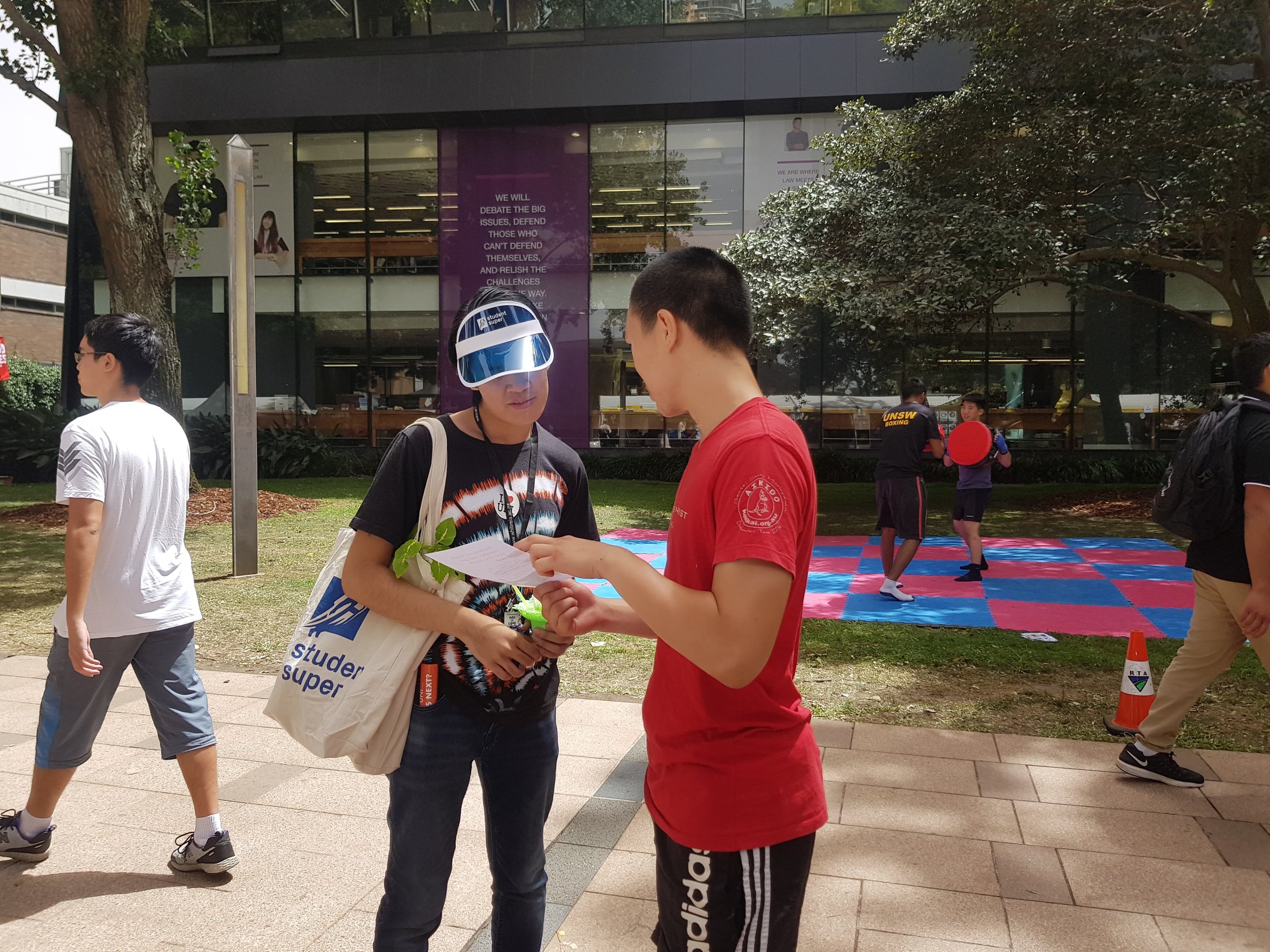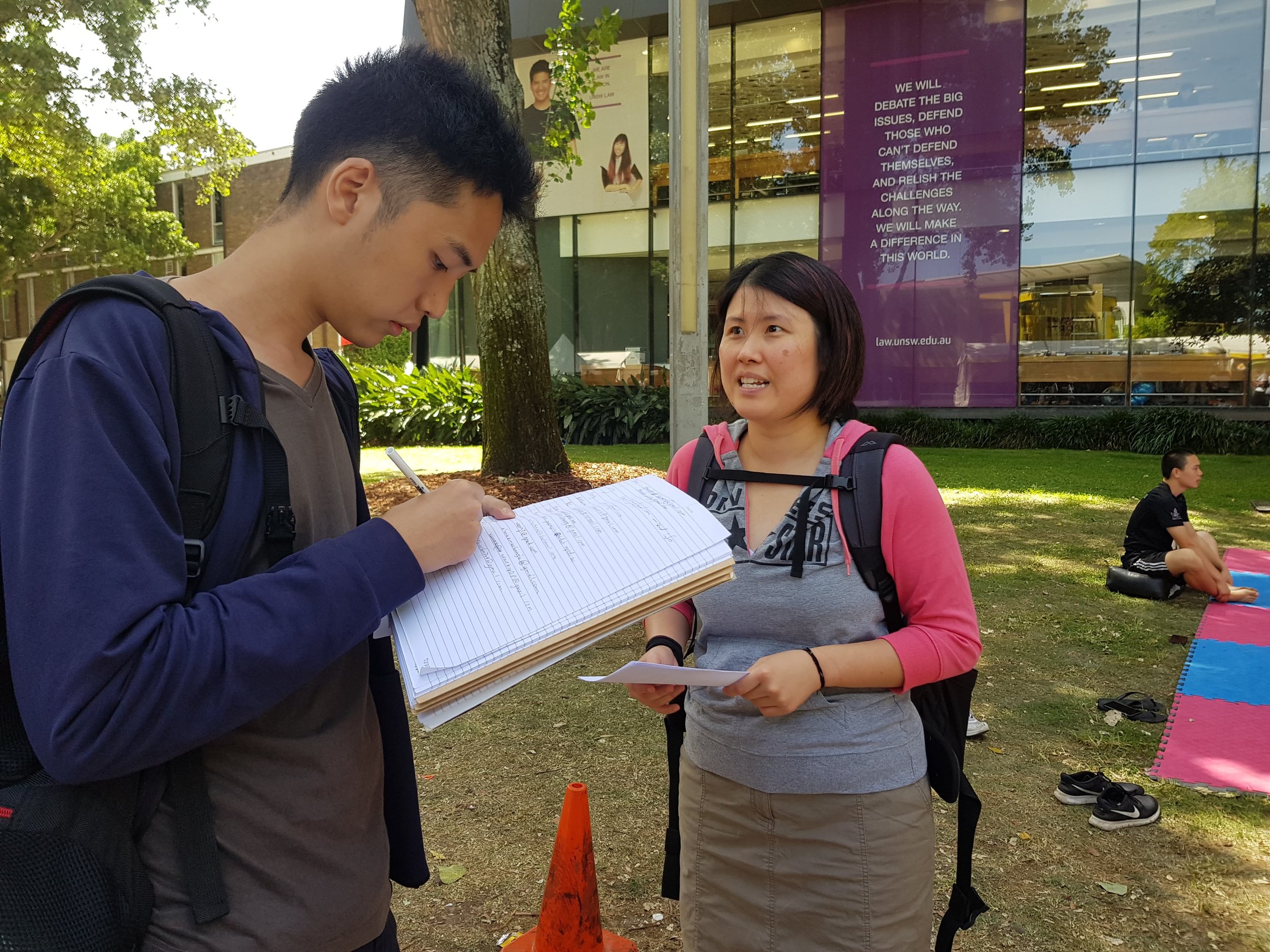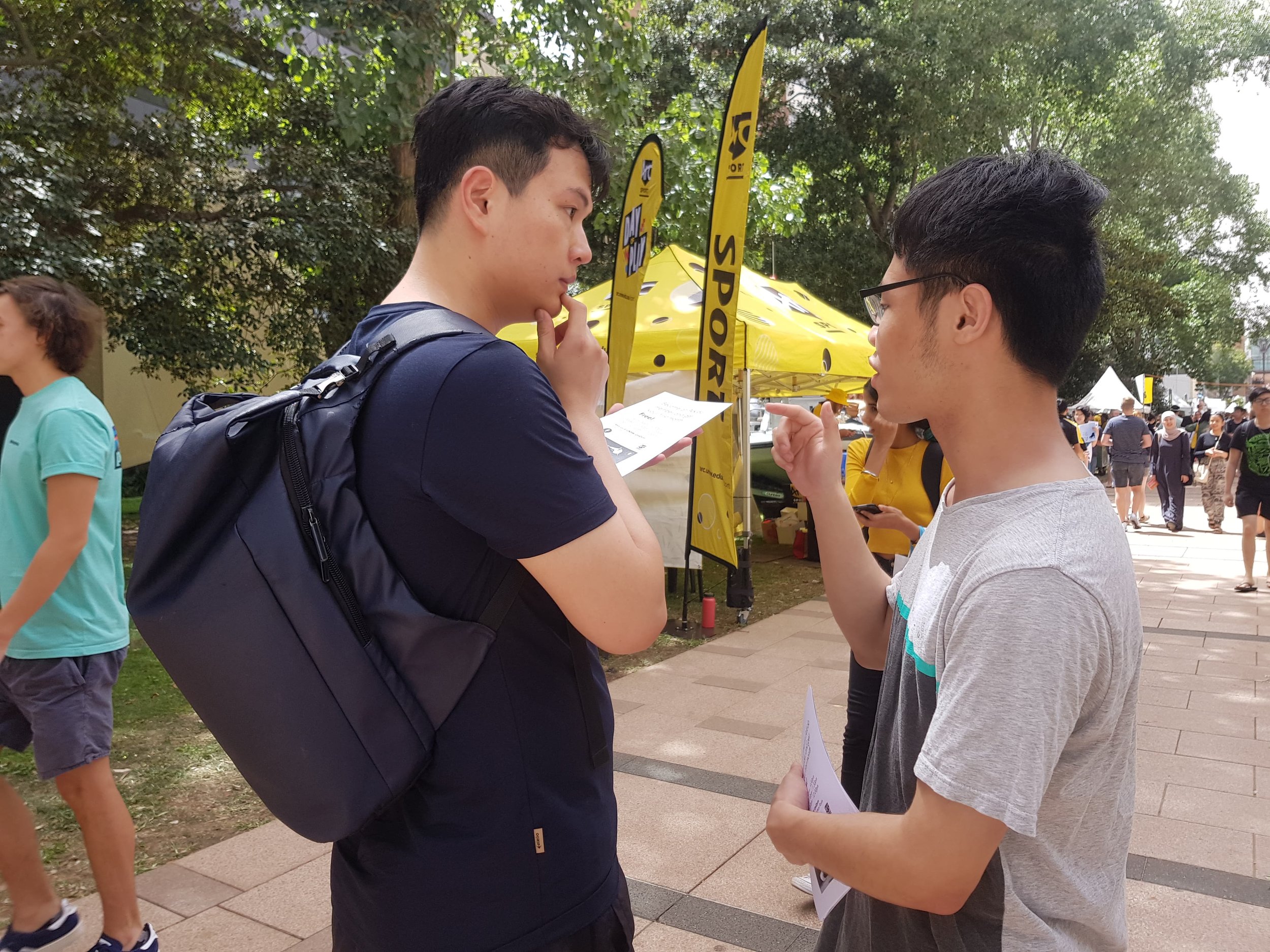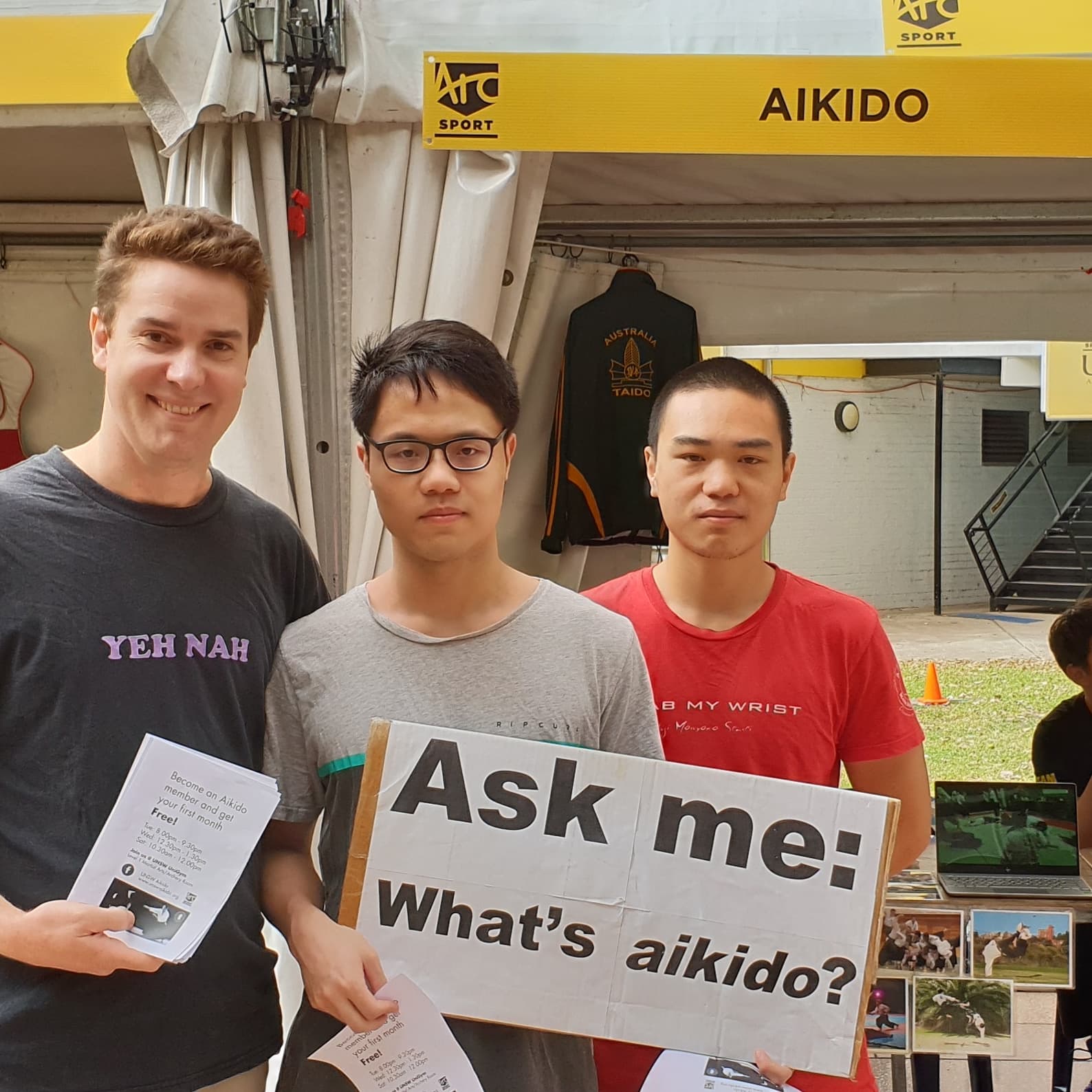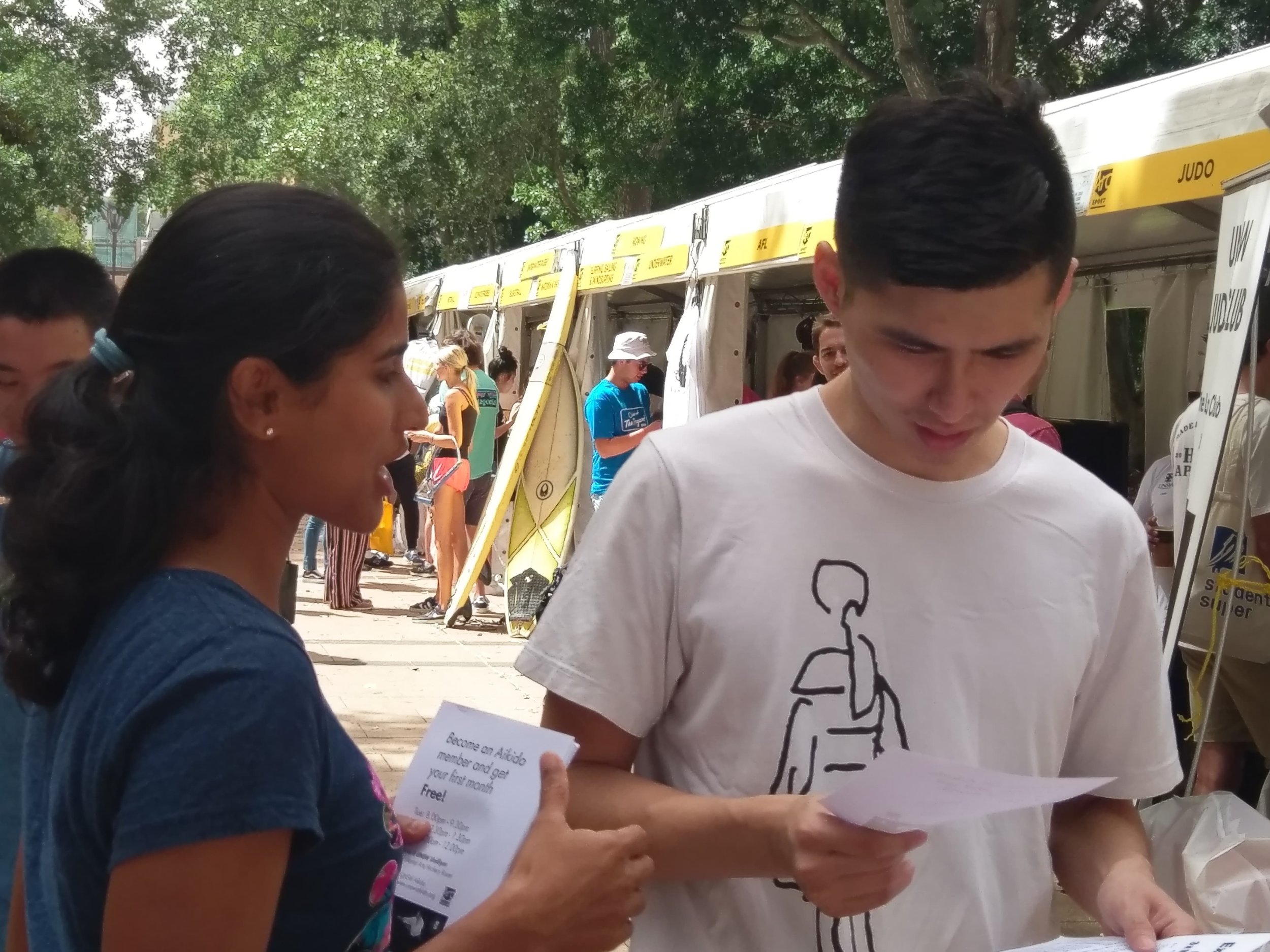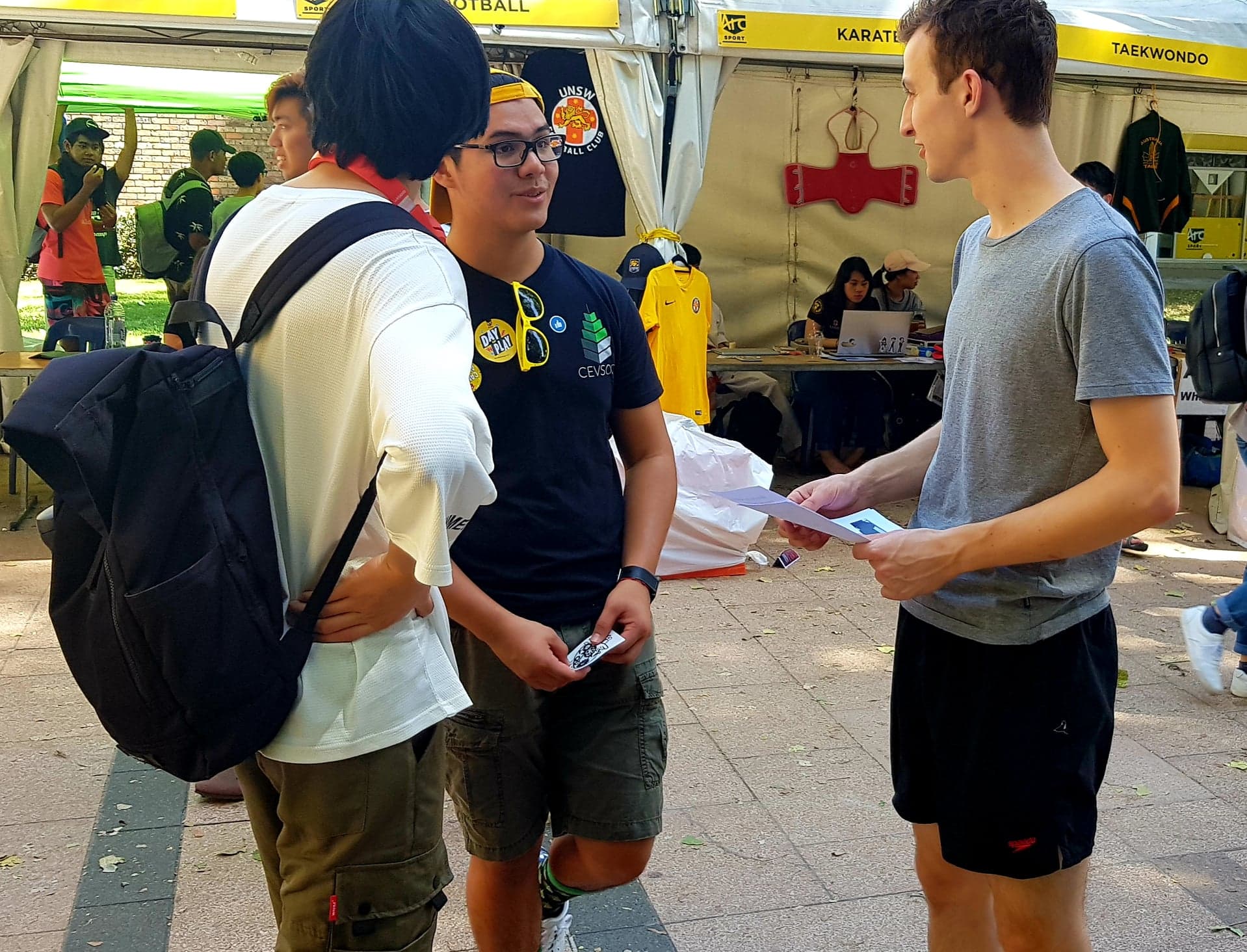Gaining a black belt
October 2019, on the long weekend of my eighth wedding anniversary, I did my black belt grading. It was an enjoyable experience in the end (and especially in hindsight). I felt more comfortable during my grading than expected. This was all down to the intense training and support provided by the amazing and inspiring instructors who have guided me over the years. Also, I would not have gained this achievement without the love and support of my amazing wife, who did her ni-dan grading on that same weekend!
What does aikido mean to me?
Aikido has come to mean a lot to me. Early in my life my (non-aikido) martial arts training was focused on being able to “destroy” an opponent through force. That might be a fun activity for a 19 year old, but I have come to learn that it is unsustainable as a life-long activity. Aikido, for me, is about control. Controlling a situation. Controlling an opponent. Controlling myself.
Physical dimension
Of course there are physical benefits of aikido training that I love. It is the best whole body workout that I have come across. Every part of me is worked during an aikido class and I get cardio, strength, and flexibility benefits. It might be almost unbelievable to anyone who has seen me during warm up stretches, but my hamstrings are becoming less tight, albeit at a glacial pace. As has been demonstrated by numerous senior aikidoka and teachers, aikido can be a life-long martial art. I plan on doing aikido for at least another 40 years. If I keep up my training as I plan, I hope to avoid falling over, which is an increasingly common cause of hip and head injuries for Australians over 65. Or at least whenever I fall over I do a proper break fall and make sure I tuck my chin to my chest.
Mental dimension
The mental dimension of my aikido training is a big reason why I do it. While it is a great workout, it is also fun. This makes time fly by in classes. Being bored is the main reason I never maintained a regular gym program. Boredom is not a problem on the aikido mats. Aikido is very challenging and I am constantly out of my comfort zone. Just when I feel like I am getting the hang of a movement or technique, I start to realise that I am a million miles away from mastering it. The Dunning-Kruger curve is a long one in aikido.
Outsourcing my self-discipline
I had barely learned how to put on my hakama before covid19 hit. Self-control, or self-discipline, is a major part of the mental dimension of aikido. Or at least it can be. The covid19 lock-down exposed the fact that I was outsourcing my fitness self-discipline to aikido. At its simplest, my fitness self-discipline was making sure I turn up to aikido class regularly. Once I turned up, the hard bit was over and I got my fitness, cognitive, and technique benefits. I may have gone for the occasional run or swim, but my whole fitness schedule was based around the one or two aikido classes I did each week. When aikido training was suspended due to covid19, my whole fitness regime collapsed and I started putting on covid kilos!
In the time since training resumed I have expanded from using aikido as a crutch for my fitness. Aikido is still a core part of my fitness schedule but I now also apply the same level of discipline off the mats to carry out an expanded exercise regime. I have woken up to the fact that I need to take accountability for my own health and now that I am a black belt it’s time to do the same to progress my Aikido.
By Chris Hall

